GoZero Mobility To Focus On Mass Premium Market In India
- By Sharad Matade
- December 19, 2020
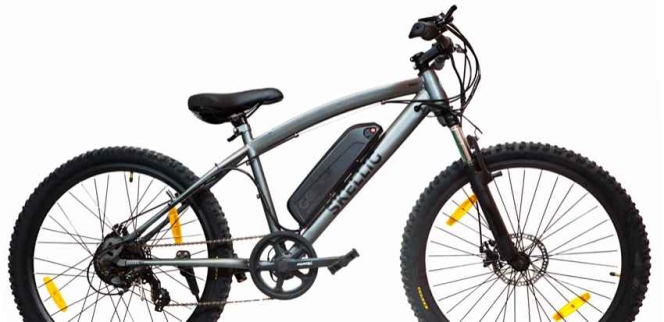
The launch of the new products is in line with the growing demand for e-bikes in India,triggered by the rising awareness of a healthy and active lifestyle. GoZero’s CEO, Ankit Kumar, said, “The pandemic has triggered and propelled the need for people to take health seriously. We have seen a sudden increase in e-bike sales globally. Our core aim at GoZero is to continuously develop exceptional products that become an aid for people to adopt an active lifestyle. We are launching the Pro version of Skellig, launching our Make.Fit series of active performance wear and releasing our new toll-free lines for our customers.”
Headquartered in Birmingham, the company entered the Indian market in April 2019 with the launch of two e-bikes. To introduce the products in the market, GoZero has partnered up with Kirti Solar based in Kolkata, for the development and manufacturing of current and future products, utilising the global supply chain to “Make in India”. As a part of the association, Kirti Solar has invested USD 250,000 in GoZero Mobility.
Skellig is powered by the EnerDrive 210Wh lithium battery pack (800 cycles), 250W motor and comes with several modes including Throttle Mode, 5-level Peddle-Assist Mode, Walk Mode, and Cruise Mode. The model has an alloy stem handle and features 26x1.95 tyres and a premium counter-body suspension fork.
Skellig Lite combines the EnerDrive 210 Wh lithium battery pack (800 cycles) and 250W motor with three modes. It features an alloy stem handle, with 26x1.95 tyres, specialised V-brakes and an independent rigid suspension fork. Both the models have a maximum speed of 25 kmph with a range of 25 km on a single charge.The EnerDrive Battery packs can be charged in just 2.5 hours.
The company has also introduced a Pro version which is a hybrid e-bike for off-roading and city commute both. Powered by EnerDrive 400 Wh lithium battery pack (2000 cycles), it is supported by a composite mild steel frame, 7-speed gear system with an advanced front suspension fork, an alloy stem handle and disc brakes for both wheels.
Besides, it has Control Version 4.0 LCD and a flashlight with a guide-me-home enabled lighting system. The maximum speed of this model is 25 kmph and powers through for 70 km range in a single charge, which takes around three hours to recharge from 0-95 percent.
According to Kumar, the e-bike market in India is growing three folds every year. Last year 6,000 units were sold, of which the company had a share of 30 percent. This year, the industry sees tremendous growth due to focus on health and social distancing, clocking around 19,000 units. Though the e-bike is a niche market, it fits in between two segments-the bicycle and the two-wheeler industry, which have a sales volume of 16 million and 21 million units, respectively.
“E-bikes become the right option for both types of consumers- first who want to an e-bike for commute and do not want pay big amounts on scooters or motorcycle and for those, a larger group, who want e-bikes for commuting purpose and healthy lifestyles as well. We focus on to offer the right mix of technology, cost and quality,” said Kumar.
Skellig and Skellig Pro, are being sold through online and offline routes, while the Skellig Lite is being sold through online platforms. About 75 percent of the sales comes from offline, while the rest comes from online portals.
After launching of its two models, the One and the Mile, last year, the company realised that there are larger numbers of people who want to buy an e-bike in the range between INR15,000 to INR 20,000. However, there is no company which offers e-bikes in that range. Therefore, it launched Skellig Lite for INR 19,999.
To expand business, the company is doubling its dealers to 100 by January 2021. The company is taking entrepreneurs on board, and the programme is called direct sales partners. Explaining this programme, Kumar said, this is for individuals who have a passion for sales and wants to start their own business but does not have capital. “If a person has sales experience, he can join us as a direct sales partner. We give him/ her all collaterals- the marketing materials-and if the person cracks a deal with an individual or a corporate, the direct sales partner gets a commission. They don’t need to keep an inventory.”
As of now, the company has over 100 direct sales partners and, in the last three month, it has converted seven direct sales partners into the dealers.
The company is also expanding its experience centres in India from three to five soon.
Kumar said, “Our dealers get a margin of up to 16 percent on e-bikes and we also offer good margins on the active performance wears which have been launched by the company recently.”
The company gives a warranty of two years on each e-bike and provides two free services in the first year. The company is increasing local authorised technicians, whose data will be updated soon on the company website, to have e-bike serviced at home. It is also working on having partnerships with service providers such as GO Mechanic to avail services where the company dealers and technicians are not available as of now.
On the possibility of price reduction, Kumar said, “We will be trying to reduce the prices of our products further, but there is a threshold. We cannot bring down the prices after one level as we do not compromise on the quality of our e-bikes. Main costs of any e-bikes come from batteries, motors, and controllers. Until India does manufacture cells and make batteries locally, it will be difficult to bring down the prices after a certain level.”
The company has a manufacturing unit near Kolkata with a capacity of 12,000 units per annum. To support speedy deliveries it is also exploring to build a facility in North India, which will have a capacity of 20,000 per year.The company is facing significant challenges on the logistic for delivery of the products due to COVID. According to Kumar, delivery time and cost have doubled thanks to COVID. “We do not see the logistic business will come back on track at least for the next one year and that is the one the reasons to open a plant in North so we can cater to north and west market more efficiently,” said Kumar.
Last year the company sold around 1,150 units, and for this year, it targets to sell about 2,000 units. “Due to the lockdown, we have revised our sales target from 3,000 units to 2,000 units for this FY.” Majority business for the company comes from south India, particularly, Hyderabad, Bengaluru and other cities, where technology adaption is faster.
To enhance e-bikes’ experience, the company has launched comfort apparels. Most of the amateur cyclists do not feel comfortable wearing skintight spandex. It has developed active gears, specifically design to bend tech with comfort and style. “We have introduced active gears which are comfortable and durable products and allows more breathability to users,” Kumar added. (MT)
ZF, BMW Sign Long-Term Supply Agreement For Drive Technologies
- By MT Bureau
- February 03, 2026
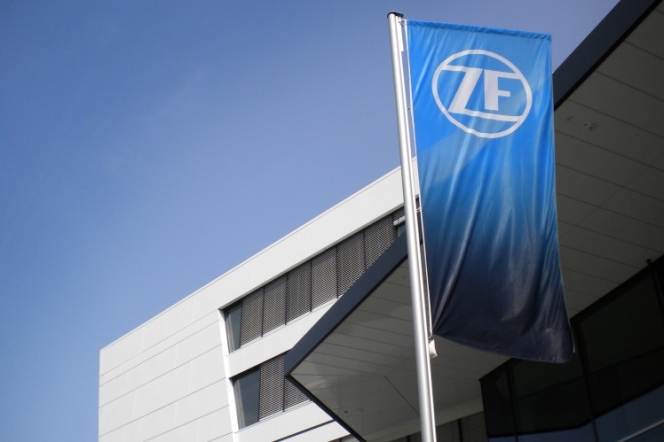
German tier 1 supplier ZF Friedrichshafen and the BMW Group have entered into a long-term supply agreement for passenger car drive systems. The contract, valued at several billion euros, extends until the late 2030s.
The agreement focuses on the supply and continued development of the 8-speed automatic transmission (8HP). The partners aim to support low-emission mobility and maintain technological flexibility during the industry transition.
A central component of the partnership is the technical evolution of the 8HP transmission kit to meet the requirements of electrified drives. The development will focus on increasing efficiency and performance for future vehicle concepts.
Mathias Miedreich, CEO of ZF, said, “Together with BMW, we are sending a strong signal for innovation, efficiency, and sustainability in an industry undergoing dynamic change. This agreement highlights the strategic importance of our 8-speed automatic transmission as a key technology for the transformation of drive systems.”
The duration of the contract provides both ZF and BMW with planning stability in a changing market. ZF aims to strengthen its position as a system supplier while reducing risks through close collaboration with the carmaker.
Sebastian Schmitt, Head of ZF's Electrified Drive Technologies division, explained, “The new agreement with BMW shows how important long-term planning horizons are for technological advancements. It creates clarity and stability for both companies and enables us to align the next generation of the 8HP specifically toward efficiency, performance, and long-term viability.”
Leapmotor Selects Aumovio For Safety Technologies
- By MT Bureau
- February 02, 2026
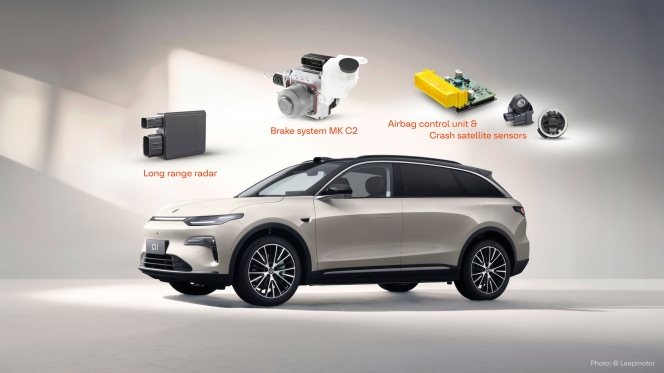
Aumovio has entered a supply agreement with Chinese electric vehicle manufacturer Leapmotor to provide safety components for the carmaker’s B and C platforms.
Several models within Leapmotor’s B platform now utilise Aumovio's long-range radar, electric parking brake and airbag control unit (ACU). Models on the C platform, including the C10, C11 and C16 SUVs, feature the latest generation of the MK C2 one-box brake system, alongside the long-range radar and ACU.
The project was completed with a development cycle approximately one-third shorter than traditional automotive timelines. Aumovio attributed its speed to ‘local-for-local’ strategy in China, where the company operates 20 sites and employs around 10,000 staff. In 2024, Aumovio held a 14 percent share of market revenue in the region.
The supplied technologies include:
- MK C2 Brake System: A unit combining the master cylinder, electronic brake system, and brake booster. It is produced locally in Shanghai.
- Long-Range Radar: A sensor with a detection range of up to 280 metres, used for driver assistance across both platforms.
- Airbag Control Unit (ACU): Integrated with crash satellite sensors, these components are manufactured in Changchun.
Boris Mergell, Head of the Safety and Motion business area at Aumovio, said, “Pairing ‘China speed’ with ‘German quality’ technologies helped us to support a rapid roll-out with our latest safety technologies. This underscores Aumovio’s course towards an adaptive powerhouse that works flexibly and closely with customers to innovate. It also shows that we continue to strengthen our customer relationships in the important market China.”
The partnership supports Leapmotor’s international presence. The B10 and B05 models, which feature Aumovio's ACU and radar technology, were showcased at the IAA 2025 in Munich as part of the manufacturer's European entry.
LTTS Secures Multi-Year Deal From Automotive OEM For Engineering And R&D
- By MT Bureau
- January 28, 2026
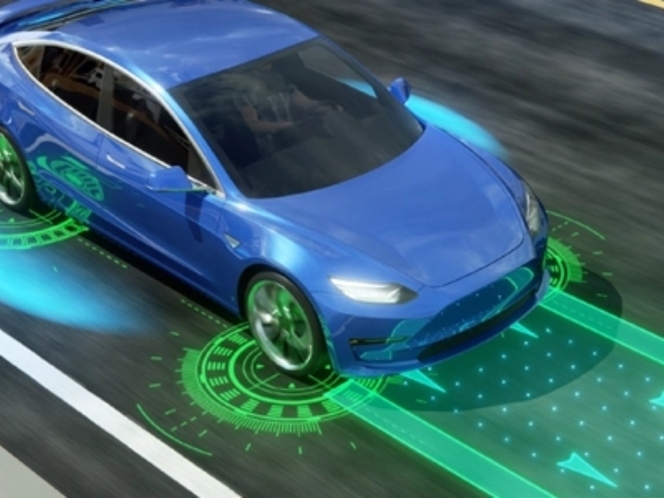
Bengaluru-headquartered ER&D company L&T Technology Services (LTTS) has announced a multi-year engagement within its mobility segment from an automotive manufacturer. The agreement involves software, connectivity and digital engineering services across vehicle technology domains. This win follows the company’s investments in R&D labs and mobility infrastructure designed for programs with global manufacturers.
The engagement covers mobility engineering capabilities, including embedded systems, digital platforms, verification and validation, cloud integration and cybersecurity. LTTS intends to use its engineering expertise and delivery frameworks to support the customer's technology roadmap.
At present, LTTS operates 22 design centres and 100 innovation labs globally.
The agreement strengthens the partnership between LTTS and the automotive manufacturer in the area of mobility engineering. The company provides design, development, and testing services across the mobility, sustainability, and tech segments.
Alind Saxena, Executive Director and President, Mobility and Tech at L&T Technology Services, said, “We are proud to deepen our partnership with the valued customer through this strategic engagement. LTTS brings together domain-led engineering, secure development practices and excellence in global delivery to accelerate the future of premium mobility. The win reflects the trust placed in our teams and our commitment to delivering world-class engineering at scale”.
Valeo And NATIX Network Partner To Develop Open-Source World Foundation Model
- By MT Bureau
- January 25, 2026
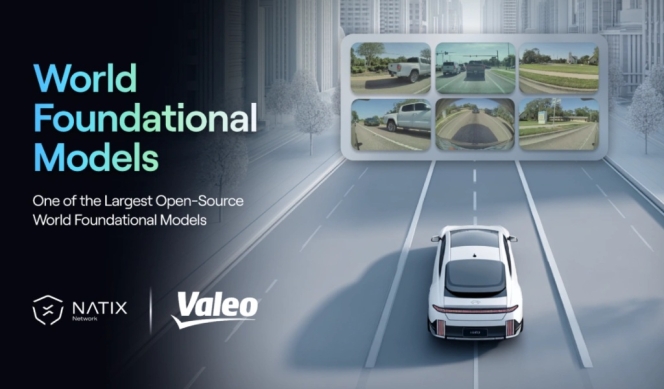
French technology company Valeo and NATIX Network have announced a partnership to develop a multi-camera World Foundation Model (WFM). The project combines Valeo’s research in artificial intelligence and generative modelling with NATIX’s decentralised physical infrastructure network (DePIN) to create an open-source platform for autonomous driving and robotics.
The initiative aims to move beyond perception-based models by creating a system capable of predicting future states and reasoning about physical interactions in a four-dimensional environment. The model will be trained using NATIX’s data network, which has collected 600,000 hours of video data across the US, Europe and Asia over seven months. This data provides the multi-camera inputs necessary for the spatial perception required by autonomous vehicles and robots.
The partnership builds upon Valeo’s existing open-source frameworks, VaViM (Video Autoregressive Model) and VaVAM (Video-Action Model). While these frameworks were previously trained primarily on front-camera datasets, the integration of NATIX’s multi-camera network expands the AI’s field of vision to 360 degrees.
Under the open-source framework, the partners will release models, datasets and training tools. This approach is intended to allow the research community to fine-tune models and benchmark physical AI across various driving conditions and geographic regions. The collaboration seeks to accelerate the deployment of end-to-end AI models by learning from real-world edge cases captured by vehicles in operation.
Marc Vrecko, Chief Executive Officer, Valeo’s Brain Division, said, “Since our creation in 2018, Valeo’s AI research center has been at the forefront of AI research in the automotive industry, especially in the fields of assisted and autonomous driving. Our goal has always been to advance mobility intelligence safely and responsibly. By combining Valeo’s generative world modeling research expertise with NATIX’s global multi-camera data, we are accelerating both the quality and the accessibility of next-generation end-to-end AI models, enabling the research community to build upon strong open models.”
Alireza Ghods, CEO and Co-Founder, NATIX, added, “WFMs are a once-in-a-generation opportunity — similar to the rise of LLMs in 2017–2020. The teams that build the first scalable world models will define the foundation of the next AI wave: Physical AIs. With our distributed multi-camera network, NATIX has a clear advantage of being able to move faster than large OEMs.”







Comments (0)
ADD COMMENT